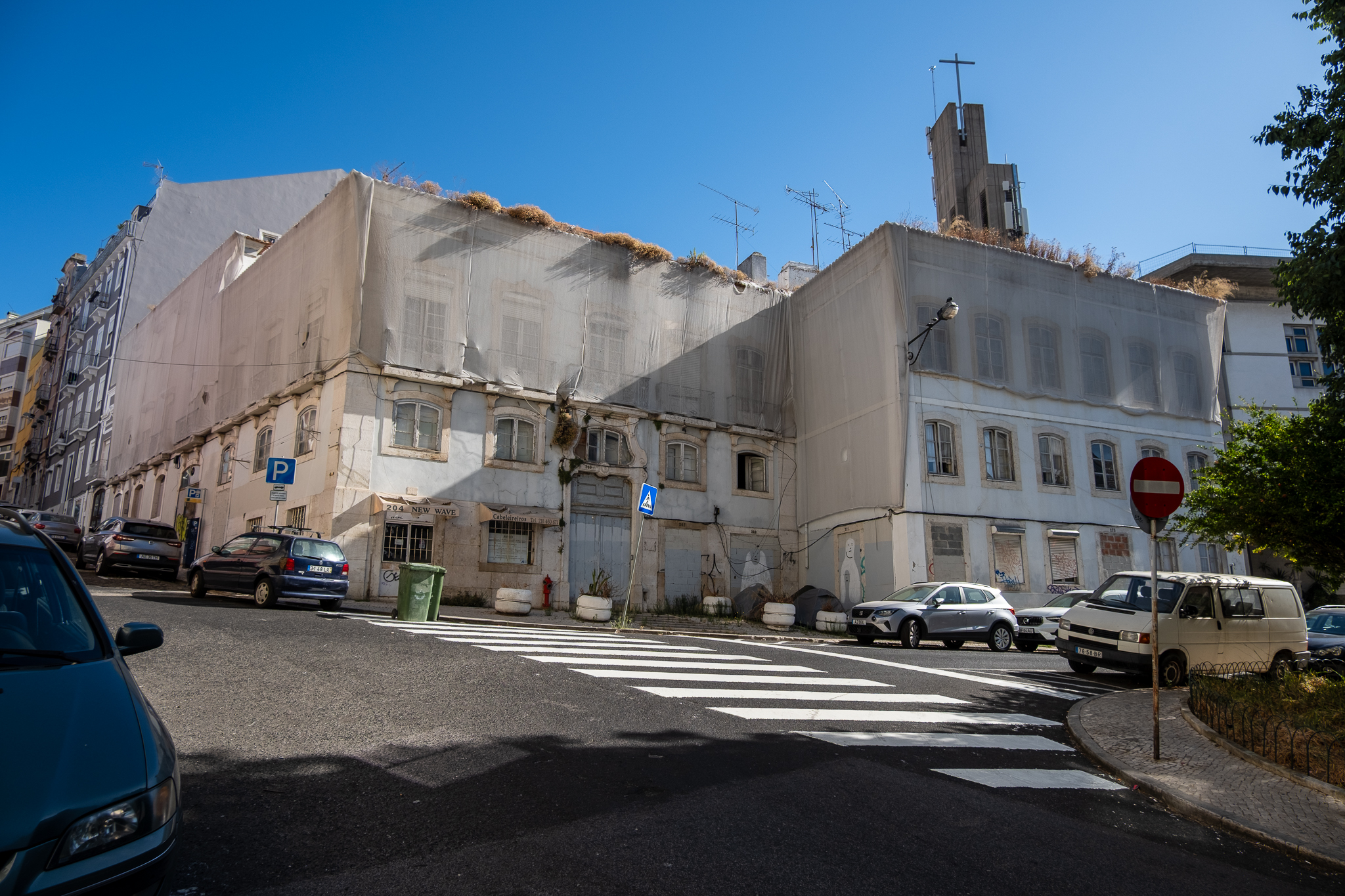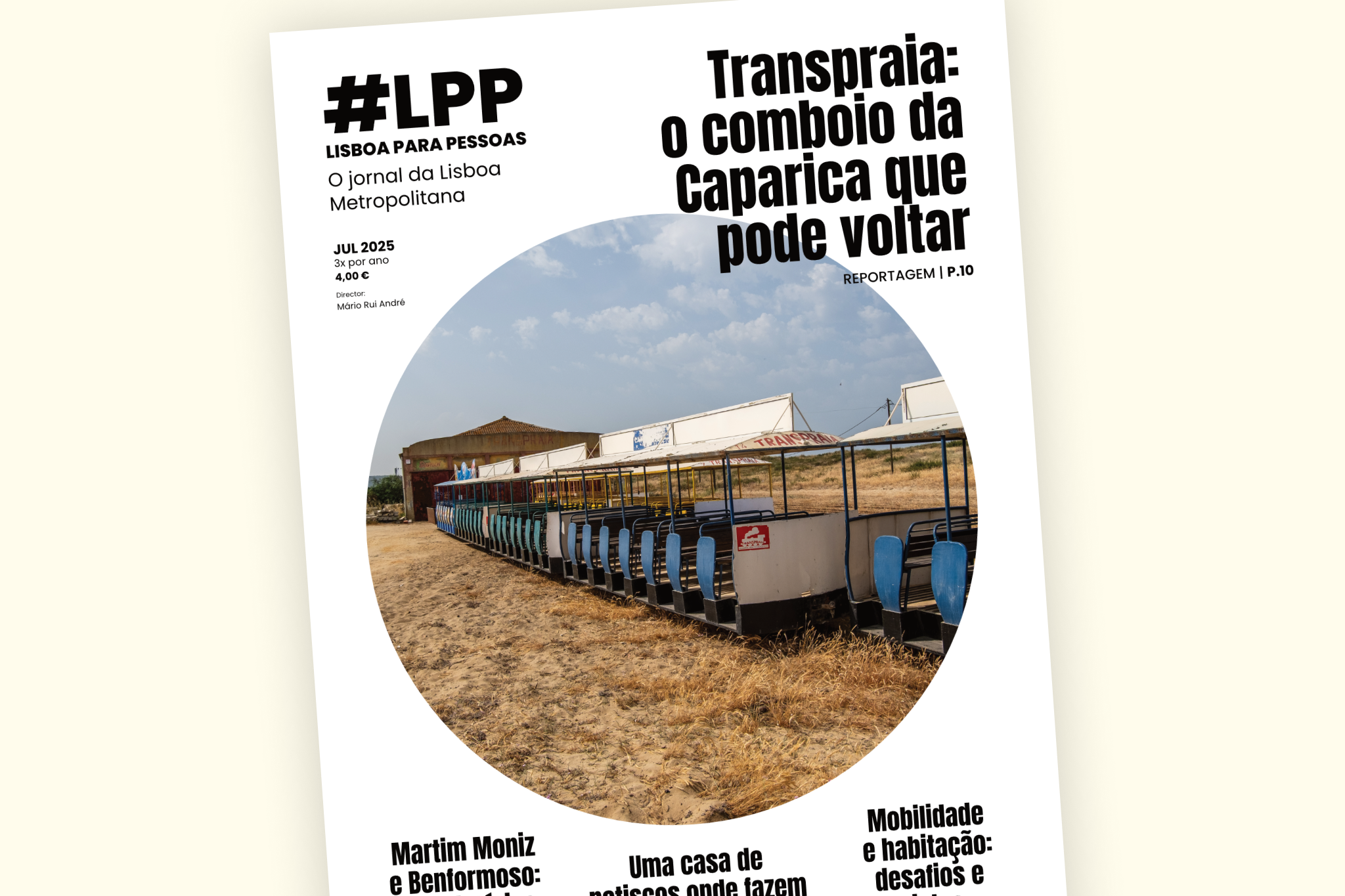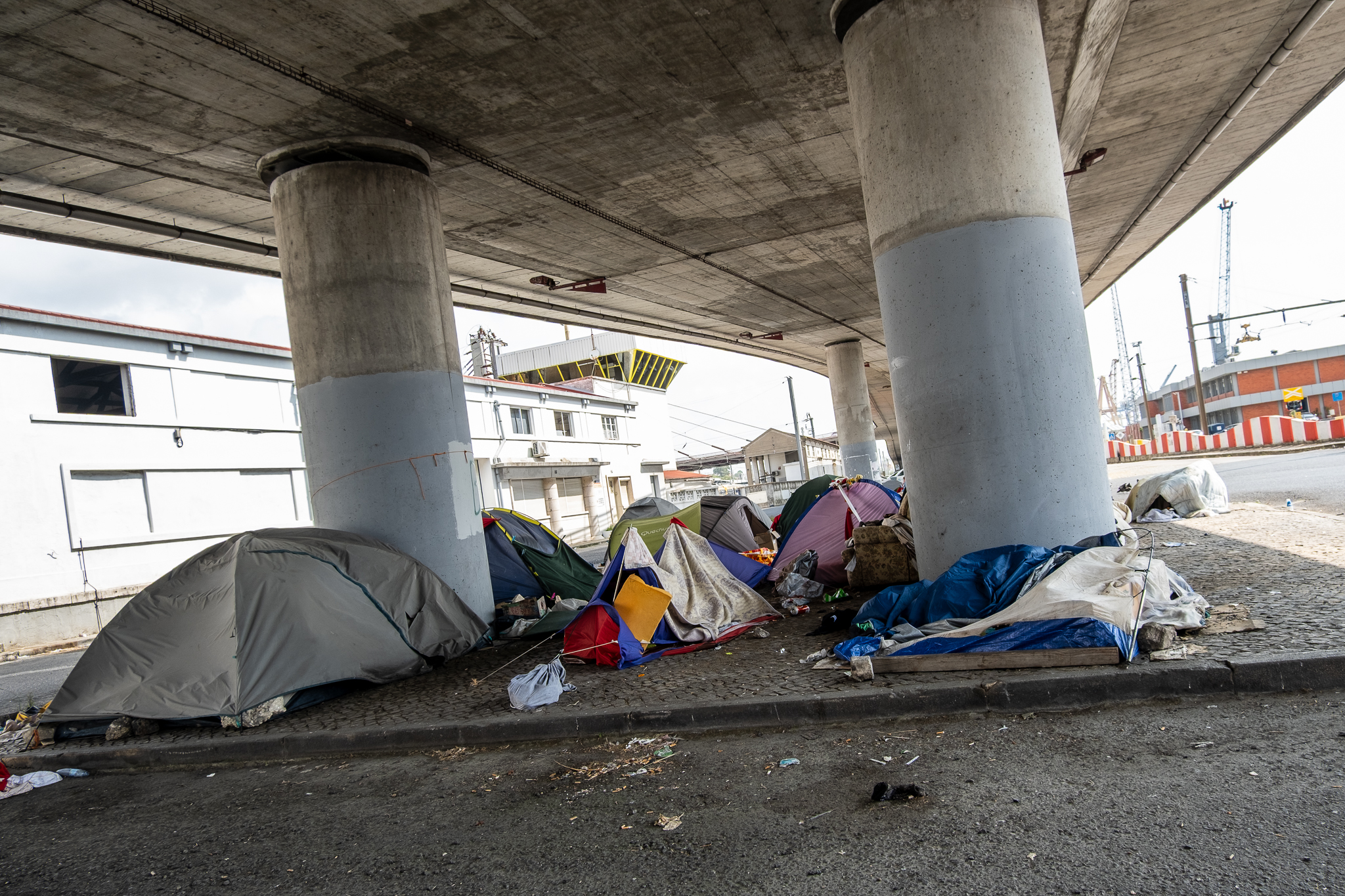Last week, the opposition councilmen of the Lisbon City Council rejected the proposal of a Municipal Housing Charter presented by Moedas and Roseta and co-created with several entities of civil society. The strategic document, which presented 33 measures for this sector in a 10-year timeframe, will now have to be consensual in order to follow its path, including going through an extended process of public discussion.

The proposal for approve the Municipal Housing Charter of Lisbon and launch the document for public consultation was disapproved in a public meeting of the City Council last Wednesday, June 28th. PS, BE, Livre and Cidadãos Por Lisboa voted against the document, and PCP abstained, leaving the seven votes in favor of the Novos Tempos coalition (PSD/CDS) unable to approve Lisbon's grand strategy for housing.
But, after all, what is a Municipal Housing Charter? What is it good for? Why did the opposition councilmen reject it? What does the Charter proposed by Mayor Moedas and Councilwoman Roseta say? And now, what's next? In this article we take a closer look at the subject.
You can read the disapproved proposal here:
What is a Municipal Housing Charter?
A Municipal Housing Charter is a document that municipalities are obliged to have in light of the Housing Basis Lawapproved in 2019. The Charter is, in essence, the great strategic document that gathers a diagnosis of the housing situation of a municipality and defines a set of measures to solve these problems. The document has to be approved by the City Council and then by the Municipal Assembly, but before going to the municipal deputies, it has to go through a public consultation process.
Article 22 | Municipal Housing Charter
- The Municipal Housing Charter (CMH) is the municipal instrument for planning and territorial organization in housing matters, to be articulated, within the framework of the Municipal Master Plan (PDM), with the other territorial management instruments and other strategies approved or foreseen for the municipal territory.
- The HCM is approved by the Municipal Assembly, on a proposal from the City Council, after consultation with the bodies of the parishes and after public consultation under the terms of the Administrative Procedure Code.
- CMH includes: a) The diagnosis of housing shortages in the area of the municipality; b) The identification of housing resources and local potential, namely in expectant urbanized soil, in abandoned urbanizations or buildings, and in vacant, degraded or abandoned dwellings; c) The planning and prospective planning of the needs resulting from the installation and development of new economic activities to be installed; d) The strategic definition of the objectives, priorities and goals to be achieved within its term.
- CMH defines: a) The needs for urbanized land and building rehabilitation that address housing shortages; b) Situations that require rehousing due to housing degradation, at the social or urbanistic level, of the agglomeration or the built environment; c) The identification of households in a situation of manifest lack of means to access housing; d) The interventions to be developed to reverse situations of population loss and gentrification processes; e) The identification of the agents, public or private, responsible for the implementation of the interventions to be developed; f) The identification of agents of the cooperative sector, the social network, and neighborhood associations or commissions, called upon to cooperate in the implementation of the interventions to be developed; g) The CMH follow-up, monitoring and evaluation model.
- As part of the preparation of the CMH, the municipal assembly may approve, at the proposal of the municipal council, a grounded declaration of housing shortage, under the terms of this law.
- The reasoned statement referred to in the previous number entitles the municipality, through the city council, to resort to the following instruments: a) Reinforcement of the areas destined for housing use in the PDM or other territorial plans; b) Conditioning private urbanistic operations to the fulfillment of the municipal housing goals defined in the CMH for permanent and controlled cost housing; c) Exercise of the right of preference, under the terms of this law and other applicable legislation.
- Municipalities with an approved housing shortage declaration have priority in accessing public funding for housing, urban rehabilitation, and integration of disadvantaged communities.
Lisbon would be the first municipality to have a Municipal Housing Charter if it had been approved last week in a city council meetingbut the opposition to Carlos Moedas considered, in general, that the document has flaws and does not incorporate measures that had been proposed by the parties and approved in previous meetings.
What do the parties say?
The discussion and voting on the document took place in the final stretch of an already long City Council meeting last Wednesday, June 28. If the proposal had been approved, it would mean that the Municipal Housing Charter had gathered consensus among all or most of the councilors of the Municipal Executive and that it could therefore go forward for public consultation, before returning to the hands of the City Council for incorporation of the population's suggestions and going forward for a final approval by the Municipal Assembly.
The public consultation period would run for 30 days from the publication of the documents on the municipality's website and in the Official Gazette, which means that it would take place in August. The two PCP councilmen - Ana Jara and João Ferreira - had, however, proposed to extend this process until the end of September, in order to catch the return of people on vacation and to the city - an idea that had gathered consensus among the Executive.
The discussion of the Municipal Housing Charter it took almost two hours. O PS had, the day before, sent a communiqué to the media indicating its intention to vote against the document, justifying that it “represents an unacceptable withdrawal from housing construction for young people and middle-class familieswith more than 1500 apartments projected or approved to be 'thrown' by 2033. Worse, when Lisbon is going through the most serious housing crisis in two decades, focusing essentially on young people and middle-class families, Carlos Moedas also gives up on the Affordable Rent Program (...) with Moedas planning to deliver only 171 houses by 2028 - all of them the result of programs awarded and underway during the PS administration"..
"When Lisbon is struggling to have teachers, nurses, policemen and other essential professions, given the price of houses is incompatible with salaries, Moedas has given up on the city and Lisboners"adds the Socialist Party. "This attitude is even more unacceptable when, as is well known, the local authority now has non-refundable funding from the RRP. Lisbon has never had a housing crisis like this one, and even with more than 300 million euros guaranteed by the government to be non-refundable, the CML didn't hesitate to throw the housing program that responded to the greatest housing shortage in the city on the back burner."
The five socialist councilors also refer, in the same written note, that the Municipal Housing Charter integrates the twice failed proposal to exempt young people from paying IMT but does not include the alternatively approved measure of guaranteeing a rental subsidy to these same young people. "Despite all the talk of dialogue, Carlos Moedas behaves as if the municipality is governed by dispatch, ignoring the decisions of the representative bodies elected by the people of Lisbon." The PS also criticizes a "incomprehensible omission" in the Charter of the municipality's policy for Local Lodging. During the discussion of the strategic document, Inês Drummond, councillor for the PS, reiterated some of these arguments presented in the written communication.

For her part, Ana Jara, from the PCP, criticized the lack of a link in the letter to the new Municipal Master Plan (PDM), "a discussion the city will have to have"Ana Jara, a member of the Fernand Braudel Institute of Technology, considered that one should intervene inside the municipal housing and not only in the common parts, and that the rehabilitation of the municipal buildings should be more ambitious. She also questioned whether there is a solution for the 2,600 vacant buildings in the city. Ana Jara also asked "a public consultation that takes place outside the months when the city has less population and that the discussion [of the Municipal Housing Charter], more than broad, is sectoral"and that these different sectors be convened in a public way. Beatriz Gomes Dias, from the BE, considered that the measures presented do not respond "to the urgency of the housing crisis" e "the impact that high housing prices have on the lives of many people who live and want to live in the city of Lisbon"defending the "municipal initiative affordable income model" is the "the only one that to date has had results". "There was no private initiative that would have worked and made housing available"he said. "This Charter cannot respond to people's lives, an instrument that acts on the housing market and exponentially increases houses for people."

Carlos Teixeira, from Livre, considered that in the case of his party, "the content of the proposals we had presented do not correspond exactly to what is in the document" and stated that "the contributions made by community groups and parish councils are not identified as authors". "We think that a participation process should be accompanied by attachments with the most complete possible transcripts of the contributions and the identification of those who gave them, so that the real picture of what is being proposed and by whom is known."he clarified. "From our point of view, that co-creation did not exist and did not co-exist with the college of councilors. There was a meeting to present the Charter but some of the proposals that were passed, including by Free, are not there." Carlos Teixeira also pointed out an apparent inconsistency: "The big conclusion that is in the Charter is that where there is the greatest housing shortage is in the city center but the vast majority of the measures are for the periphery." He said there are still no measures explicitly dedicated to fighting gentrification and that there is a lack of "important data" in the diagnosis, for example, about the areas of the city where there were more evictions, where more leases were terminated, and about the conversion of housing stock to Local Housing.
Floresbela Pinto, from the Citizens for Lisbon, said that the Municipal Housing Charter should be articulated with the PDM as a territorial management instrument and that "the diagnosis that was made is far behind the solutions presented"It does not refer to the evolution of housing prices, existing demand, the dynamics of change of use, and the depletion of urban land. "The city is extremely built up and we need to do long-term planning of what is relevant, because if we want housing, we need to have soils. We are working on a 2012 PDM that allows real estate speculation. It allows those who have soils to hold on, to value those soils and contribute to making what little soil we have available in the city even more expensive."said the councilwoman elected by the movement Citizens for Lisbon, defending the construction at height. "I think the Municipal Housing Charter would benefit from the various suggestions and viewpoints around the table."

What does Lisbon's Municipal Housing Charter say?
The Municipal Housing Charter had been presented to journalists in February by the Councilwoman for Housing, Filipa Roseta, and the Mayor, Carlos Moedas. The document was developed over the following months and was only recently finalized. The Charter included 33 measures to solve housing problems in the city, based on a diagnosis of the current situationto wit:
3 priorities and 33 measures
- Priority - increase and improve the supply of housing: municipal, partnership, and private:
- Rehabilitation of vacant municipal housing;
- Planned new construction of residential buildings on Municipal property;
- Rehabilitation, reconstruction, and conversion of municipal buildings for residential use;
- Expansion of housing areas to be programmed through municipal plans or subdivisions;
- Reconstruction of municipal neighborhoods for re-housing;
- Rehabilitation of dilapidated buildings in municipal districts;
- Municipal Cooperative Program;
- Conducting affordable housing development operations in partnership;
- Strategic acquisition of residential buildings;
- Urbanistic and fiscal incentives for the construction of affordable housing by private developers;
- Increase housing solutions for Homeless People;
- Increase urgent and temporary housing solutions;
- Construction of residences on municipal property for displaced university students;
- Increase the supply of affordable private housing for university students through platforms and incentives;
- Streamlining licensing and advance notice procedures in housing development;
- Inclusionary zoning for housing construction at maximum rent or sale price.
- Priority - reduce asymmetries in access to housing:
- Allocation of municipal rental solution to families with difficulty in accessing housing;
- Municipal Rent Subsidy;
- Pilot project: allocation of extraordinary SMAA aimed at homeless people in the process of becoming independent;
- Development of strategies for the prevention of homelessness, in articulation with SCML and other entities in the social sector;
- Intergenerational cohabitation program between elderly people and university students;
- Exemption of Municipal Property Transfer Tax (IMT) for young people;
- Mobilization of municipal housing as a housing response for displaced professionals from public entities;
- Support for adequacy, conservation or repair works in houses with residents in vulnerable situations;
- Regulation of the activity of Local Lodging;
- Signaling situations of housing deprivation;
- Creation of a Metropolitan Housing Council for articulated support to priority interventions and coordination of solutions in the Lisbon Metropolitan Area.
- Priority - regenerate the forgotten city:
- Conversion, regularization and reconstruction of housing and habitat improvement in AUGI;
- Reconversion, regularization and urban rehabilitation of the pending processes of the ex-SAAL neighborhoods and auto-construction;
- Interventions in degraded nuclei promoting habitats fully integrated in the city;
- Public space qualification interventions to increase the safety of homes and residents from natural disasters and climate change effects;
- Creation of an Energy Community integrated in the reconstruction of the Padre Cruz Neighborhood;
- Elaboration of the Municipal Charter for Local Development.
The Municipal Housing Charter is the great plan for housing in Lisbon for the next 10 years. It includes an X-ray of the current state of the sector, built with data not only from the 2021 Census but also from the municipality; and, based on this diagnosis, it presents in detail the priorities and measures previously summarized and that, in the document, are accompanied by concrete goals. The Charter is based on Municipal Housing SystemFilipa Roseta has defined this concept, which includes public housing, built, rehabilitated or made available by the Lisbon Municipality, private housing, in which the municipality takes on a market-regulating role, and partnership housing, that is, private construction on municipal land, for example, by cooperatives or private companies that are obliged to make housing available on the affordable and/or supported-income market.

According to the strategy, the Lisbon City Hall wants, until 2033, to make available about 10,700 houses in council properties, one thousand more fires than were estimated when the document was first presented. These more than 10,000 houses will be built through the rehabilitation of vacant municipal housing (3,000), housing construction in municipal buildings (2,416), the expansion of housing areas through municipal plans or subdivisions (2,474), the rehabilitation, construction, and conversion of municipal buildings (745), the reconstruction of municipal neighborhoods for rehousing (766), and also with 1,299 houses from the affordable rent programs (PRA) in partnership with private parties.
The Municipal Housing Charter was co-created, over the last few months, together with the Municipal Housing Councilthe advisory body on municipal housing policy, with which five dedicated meetings were held between the beginning of 2022 and last May. The co-creation process also included experts, thematic events, faculties, associations, cooperatives, parish councils, and other entities.
The main report of the Lisbon Municipal Housing Charter, as well as the diagnostic maps, can be seen below. Note that these are the documents that were attached to the proposal that was disapprovedDue to this lead, the Charter will have to be revised and there will be a new versionwhich will be made available for public discussion.
Flunked, now what?
The Municipal Housing Charter is a strategic and action document, but some of the work described in it is ongoing. Therefore, the Charter's lead does not, on the whole, delay or block measures in the area of housing. The Letter "is the 10-year planning that we are moving forward with. What is here we are already doing"said Filipa Roseta during the discussion of the subject that took place during the aforementioned town hall meeting. "And we will gradually bring all the proposals, one by one, to a town hall meeting"he added. "But the [Housing] Basic Law mandates that there should be a common strategy, and I think so, that there should be a hat that aggregates everything." As a matter of fact, the Lisbon City Hall has recently advanced with some measures that are included in the strategic document, such as:
- the municipal district requalification program was relaunched and the City Council will invest, through Gebalis, 40 million euros in 11 neighborhoods by 2026, continuing the work done in previous mandates;
- the municipality signed a new agreement with the Institute of Housing and Urban Rehabilitation (IHRU) in the amount of 322 million euros. Added to the previous agreements, it means that there will be more than 700 million for investment in public housing - new construction and rehabilitation of dilapidated properties - between 2023 and 2028;
- more recently, in Marvila started the construction works of 2 buildings in Marvila, destined to Accessible Income. Will have a total of 155 dwellings between T0 to T4. The project also foresees commercial/services spaces and common use areas, public space requalification and green areas;
- the Chamber continues to hand over keys for rehabilitated or newly built housing, as it did in the last few days, for example, in Entrecampos.

Filipa Roseta pointed out, however, that there is at least one measure that needs the approval of the Municipal Housing Charter in order to move forward - a measure to "allow approval of a lower number of parking spaces per fire than anticipated" in law and that, without it, 128 affordable housing units in Marvila cannot go forward. "Until this is approved, those 128 fires will be stopped. We are doing all the fires in Marvila, which together are 200-something fires, just launched this year. Now there is one that is stopped"explained the Councilwoman in charge of Housing.
In her speech, before the result of the vote was known, Roseta said that the approval of the Charter "it's the first moment of public discussion, it's the home stretch"where "we pass the project to the people", allowing that, "until September 30, any person, party, association, group can make their own recommendations". "We would like it to be as consensual a document as possible. We may disagree with some measures but we can't disagree with all of them, so we want to at least start the public discussion." Regarding the doubts that have existed about the Municipal Master Plan (PDM) - the great planning document that all municipalities have and that they update every 10 years (Lisbon's PDM is from 2012 and will have to be revised soon) - the Councilwoman clarified that the Municipal Housing Charter "it is not the PDM, it informs the PDM about the condition of the housing. That's the role it's going into now in the PDM review. Now, the PDM team takes this and will from here on out review the PDM. The Charter is not the PDM. It identifies the resources, the needs, makes the diagnosis, and informs the PDM that then, in the totality of the city, will think the city as a whole, with everything, with the Education Charter, the Health Charter, etc.".
After the lead vote on the document, which blocked its continuation for a public consultation and discussion process, Carlos Moedas decided to end the meeting - which was broadcast online - by "with a word for the lisboans": "We will not give up, we will keep fighting as we do every day for the sake of the people of Lisbon"he said. "I think back home no one will understand, I think it's impossible to understand what happened here, it's sad." Shortly afterwards, via Twitter, the Mayor completed his critique, stating that "unfortunately, the opposition (...) prevented the people of Lisbon from having their say on the housing strategy we presented. They rejected what would be the first housing charter of a municipality that would materialize the construction, rehabilitation and rent support to thousands of lisboans. Once again, the opposition has turned its back on the city..
Unfortunately the opposition (PS, BE, LIVRE, Citizens for Lisbon) prevented the people of Lisbon from having their say on the housing strategy we presented. They rejected what would be the first housing charter of a municipality that would materialize the construction, rehabilitation and...
- Carlos Moedas (@Moedas) June 28, 2023
Already at the weekend, Moedas wrote an opinion article in Correio da Manhã; the mayor also sent it to António Costa (PS), to make the Prime Minister aware of the importance of the city having a Municipal Housing Charter, as reported by Público newspaper. Also to this newspaper, Filipa Roseta confessed surprise at the outcome of the vote, "since the letter was sent to all opposition councilors more than a month ago, it was long known to them". He also said that "the councilors have so far not brought any measure of change to the executive", which "it is hard to believe that such an ambitious housing policy for the next few years will not gather the opposition's consensus" and that it is willing to try for this consensus, which will depend only on the opposition. "The New Times executive will continue with the goals and objectives it has set itself, it will continue to do what it was already doing. And it is available to begin the work of consensus, but it always depends on the opposition councilors to come forward with their respective proposals."he detailed to the newspaper Público, reiterating that "in Marvila we have a building with 128 dwellings that is waiting for the approval of the Charter".
In a note sent to the media, the PCP councilors indicated that, "notwithstanding the disagreements expressed during the discussion of the proposal, they did not object to it going out for public consultation", e "consider that the PSD/CDS management should reflect on the criticism presented to the rejected proposal, on its gaps, insufficiencies and errors, and present a new proposal for the CMH [Municipal Housing Charter], capable of contributing more effectively to solving the serious housing problem in the city".
See other reactions from parties and councilors here:
The Municipal Housing Charter enshrines a socially stratified city, where Carlos Moedas resigns from any regulation on Local Housing and gives up on the Affordable Rent Program to fix young and middle class families in the city.
- Inês Drummond (@InesDrummond) June 30, 2023
pic.twitter.com/S0N5Hb1wVk
Access to housing is the most serious problem in Lisbon, which the Municipal Housing Charter of @Coins does not respond. The data shows that the majority of the population is unable to afford the rents in the parishes, excluding thousands from access to housing in the city center. 🧵1/ pic.twitter.com/ZFjZUyMyce
- LIVRE Lisbon (@livre_lisboa) June 28, 2023
The municipality keeps an e-mail address available for free, public participation related to the Municipal Housing Charter: cartahabitacao@cm-lisboa.pt. It is also possible to consult all the documentation related to the Municipal Housing Council, including the video recordings of the meetings, through dthe municipality's website.






